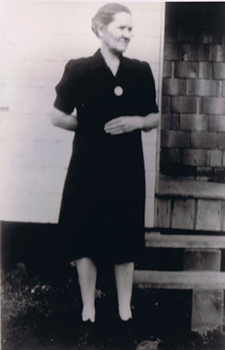Hope at the Center explores consequences of migration traced through my father’s family, tenuous and tender relations across generations.
The journey seeks healing – moving from death/darkness/despair toward life/light/hope – as a mixed-race Cherokee descendant learning the story of my ancestors.
Here are reviews of Hope at the Center from some very gifted poets. I am grateful for their gracious readings of my work.
![]()
Laura Apol, author of Crossing the Ladder of the Sun:
In this collection, Hasbrook traces her roots with poetic precision – the women and men whose lives preceded hers. But this is more than the genealogy of one individual or even one family; Hasbrook’s search becomes a lesson in American history and leads her to Appalachia, the Cherokee Nation, the 1820 Federal Census, the Civil War, European immigrants and freed slaves.
Throughout the collection, Hasbrook explores the nuances of family relationships in poems to her mother, father, grandmothers, and sister. She explains her need to explore the landscapes of her people in an early poem entitled “father“: “i take buses and trains / through your soul because / longing alone cannot tell / stories of ancestors. ” As she moves far beyond “longing alone,” Hasbrook invites us as readers to participate in the stories she uncovers in her journey.
Hasbrook has the gift of choosing just the right detail to capture the lives she describes. In “Island Sister,” she writes, “I see you and me as / bones broken by adults / who split our spirits with lies / and tried to set us in their own image.” And in the prose poem “The Mantle Clock,” Hasbrook describes her Appalachian grandmother moving to Michigan, where “winter became the longest season of her life.”
Though the stories are specifically her own, always they are set in a larger context, moving easily between the intensely personal and the wider world. Of the civil war, which in personal terms “pit[s] brother against brother,” she writes that “the tearing of the land and her inhabitants began by bringing beauties across the sea in chains and / depravity, no humanity displayed to those deeded as property,” then concludes with individual responsibility when she writes, “I know all rows I hoe are my own.”
Near the end of the collection, in a poem for her grandmother entitled, “Grandma Sings,” Hasbrook summons directly the spirits of her ancestors when she concludes “grandma keep singin / from your side of the veil / keep singin me to you.”
Connected to her past as a way of facing the future, Hasbrook allows her audience to enter the world she has inherited from those who came before. Like all good poetry, her poems allow us as readers not only to observe, but to profoundly experience the history that is hers.
Line by line it becomes clear: it is our history as well.
![]()
Alice M. Azure (Métis Mi’kmaq), author of In Mi’kmaq Country: Selected Poems and Stories:
Melissa Dey Hasbrook’s new collection of poetry, Hope at the Center, held my attention immediately with the poem titled “father,” where she tells him “…i take buses and trains/ through your soul because/ longing alone cannot tell/ stories of ancestors.” Then she proceeds to ride, collecting bits and pieces of her family’s history that becomes “…a necklace/ strung from sacred moments” (from “Island Sister”).
My favorite piece in this collection is “orphans, mixed bloods and cvil war.” The poem’s placement comes after Hasbrook has found critical information about her Cherokee heritage through some female relations and through the 1820 Federal Census. The poet appears to settle down a bit, continuing with selections grounded in the reality that she knows – her father and her grandmother. Then came the last poem – “survival “ – a surprise. I was expecting a more personal, quiet ending. Instead, Hasbrook moved to a higher plane of being, riding hard again, using the words “movement” and “motion” fourteen times:
do you remember how people have moved to survive
…..
with seasons and herds to survive
as refugees move today
…..
fleeing seasons of missiles and mines
…..
fleeing herds of tanks and planes
From living in our violent, present world, Hasbrook understands that information and documentation about her family’s unsettled, sad past will be hard to complete. But she is ever hopeful that more will surely come. We know this through her invocation of pollen, mentioned not only in the title poem, but also in a stanza from the last poem:
…..
seeds catch animal fur
…..
salmon spawn swift rivers
…..
pollen rides wind currents


